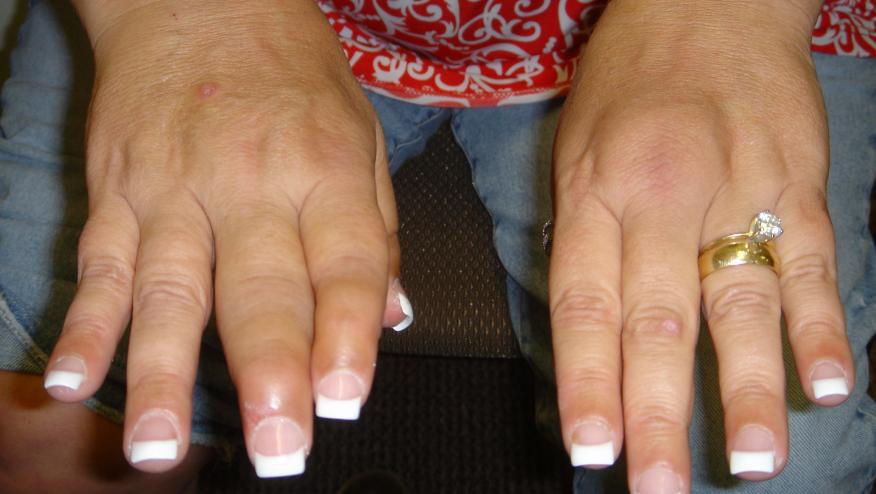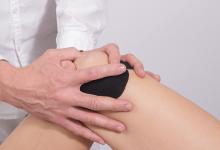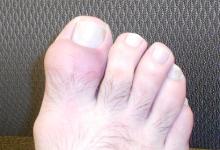Apremilast’s Rapid Onset in Psoriatic Arthritis Save

Monotherapy with apremilast (Otezla) among patients with psoriatic arthritis who were biologic-naive was significantly more effective than placebo as early as week 2 in a phase IIIb study.
After the second week of treatment, 16.4% of patients randomized to apremilast had achieved a 20% improvement on the criteria of the American College of Rheumatology (ACR20) compared with 6.4% of those receiving placebo (P=0.025), reported Peter Nash, MD, of the University of Queensland in Brisbane, Australia, and colleagues.
A statistically significant difference on ACR20 response rates also was seen between the apremilast and placebo groups at week 16, which was the study's primary endpoint (38.2% versus 20.2%, P=0.004), the researchers reported online in Annals of the Rheumatic Diseases.
The efficacy of the phosphodiesterase 4 inhibitor apremilast among patients with psoriatic arthritis who had previous exposure to conventional disease-modifying anti-rheumatic drugs (DMARDs) and/or biologic agents was demonstrated in the three PALACE trials that were part of the drug's clinical trial development program, with follow-up of up to 4 years. Concomitant conventional DMARD therapy was permitted in these trials.
The time to onset of the effect has not previously been assessed, however, and only one trial evaluated monotherapy.
Therefore, Nash and colleagues enrolled 219 patients who had previously received one conventional DMARD but no biologics in the study, named ACTIVE, assessing time to response and various other outcomes including effects on morning stiffness and enthesitis.
Patients had active psoriatic arthritis for at least 3 months, with three or more tender and swollen joints and C-reactive protein levels of 0.2 mg/dL or higher. Patients had to discontinue DMARDs but were allowed oral prednisone in dosages of 10 mg/day or less as well as nonsteroidal anti-inflammatory drugs or opioids.
Participants' mean age was 49, and more than half were women. Almost all were white. The mean disease duration was 3.8 years; the mean number of swollen and tender joints were 10 and 18, respectively; and mean body mass index was 32 kg/m2.
Patients were randomized to receive oral apremilast, 30 mg twice daily, or placebo for the first 24 weeks. At week 16, those who had not had at least a 10% improvement in tender and joint counts were allowed early escape, and at week 24, all those still on placebo were switched to apremilast for the remainder of the 52-week study.
At week 2 -- the first post-baseline assessment -- significant mean changes from baseline other than ACR20 rates were seen on these outcomes for apremilast versus placebo:
Disease Activity Score in 28 joints (DAS28), -0.59 versus -0.31, P<0.05
Gladman Enthesitis Index, -1.1 versus -0.4, P<0.05
Health Assessment Questionnaire Disability Index (HAQl-DI), -0.13 versus -0.05, P<0.05
In addition, improvements in the severity of morning stiffness were reported at that time point for 42.7% versus 21.1% (P<0.005).
At week 16, significant percentage improvements were seen for swollen joints (-46.4% versus 4.2%, P<0.0001) and tender joints (-32.3% versus 2.5%, P<0.005), as well as in the duration of morning stiffness (-33.33 minutes versus no change, P<0.005).
Functional ability assessed on the HAQ-DI showed "clinically meaningful and significant improvements" at week 16 for apremilast versus placebo (-0.21 versus -0.06, P=0.023), and the mean changes in HAQ-DI scores met the minimal clinically important difference of -0.13 at weeks 2, 16, and 24.
Clinical benefits were sustained in the open-label phase through week 52 with apremilast treatment, at which time the percentage changes in swollen and tender joint counts were -77.5% and -70.4%, respectively.
During the blinded phase of the study, the most common adverse events were diarrhea, seen in 14.7% of the apremilast group and 11% of the placebo group, nasopharyngitis, nausea, and headache. Ten patients receiving apremilast and five on placebo discontinued during the first 24 weeks because of adverse events. Serious adverse events, none of which were considered treatment-related, were reported in 2.8% of the apremilast group and 4.6% of the placebo group during the blinded phase of the trial.
Four patients reported depression, but none were serious, and there were no cases of suicidal behavior or ideation, Nash and colleagues said.
Study limitations, they noted, included the fact that there was some baseline patient heterogeneity and there was a lack of imaging outcomes.
"Apremilast has a unique mechanism of action in modulating the expression of both pro-inflammatory and anti-inflammatory cytokines; in ACTIVE, no evidence of increased incidence of serious or opportunistic infections and no cases of active tuberculosis with 52-week apremilast exposure were observed," the researchers said.
"These results support the use of apremilast monotherapy in biological-naive patients with psoriatic arthritis."
The study was sponsored by Celgene Corporation.







If you are a health practitioner, you may Login/Register to comment.
Due to the nature of these comment forums, only health practitioners are allowed to comment at this time.